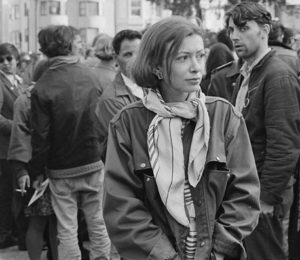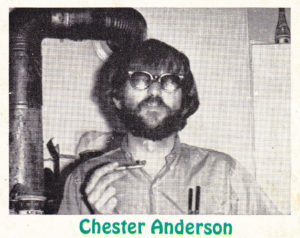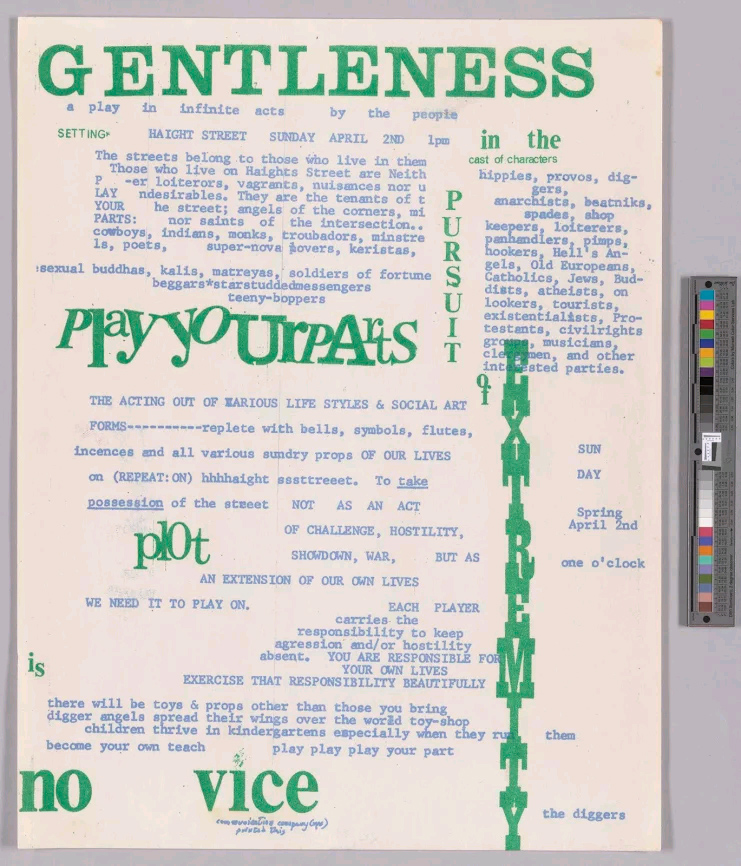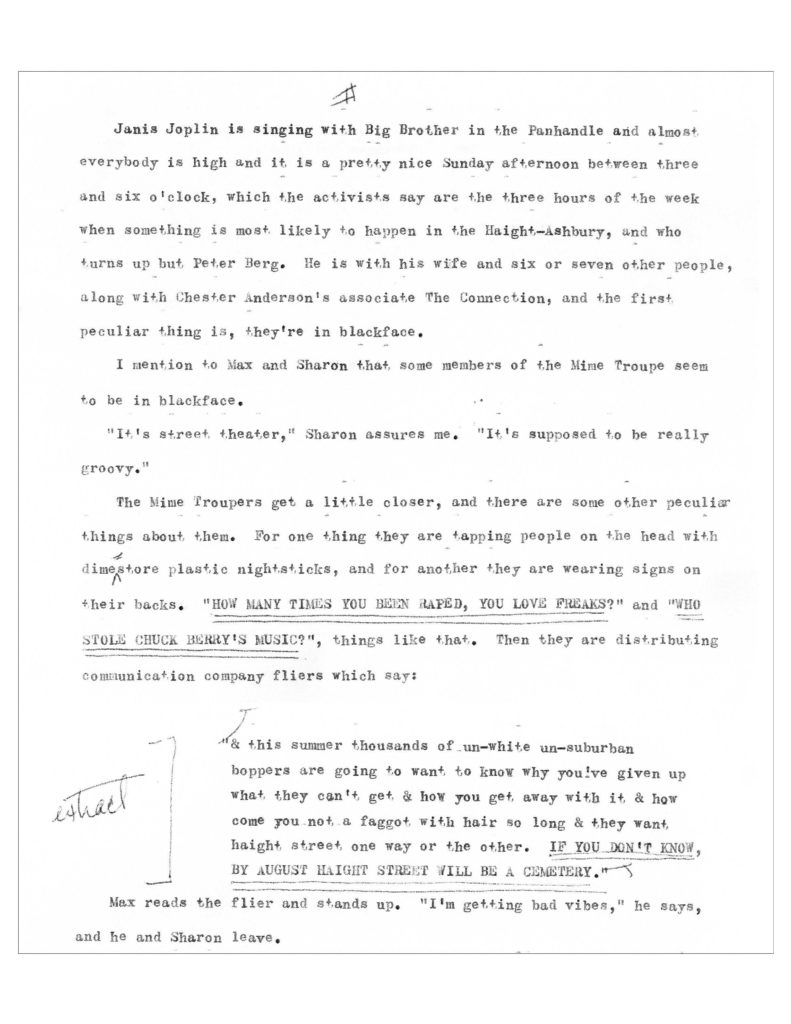by Steven Black, Bancroft Acquisitions
Things fall apart; the center cannot hold;
Mere anarchy is loosed upon the world…
–William Butler Yeats, from “The Second Coming”
As they do in a teeming metropolis, connections occur naturally among collections in libraries and other repositories. These linkages may involve ideas and people, whether by description (cataloging and metadata), archival arrangement, researcher access and review, or, in the case of a new exhibit at The Bancroft Library, by time-shifted serendipity.
“The Summer of Love, from the Collections of The Bancroft Library” fortuitously brings together two representative figures who, in 1967, circled each other warily, but never met.

Joan Didion’s reportage in “Slouching Towards Bethlehem” is highlighted in a timely Bancroft exhibition along with images of the hippie scene in San Francisco taken by photographer Ted Streshinsky.
One thread running through her piece (in a reproduction of her typescript essay as submitted for later book publication) is a search for the Communication Company printer and publisher Chester Anderson.

Funded by proceeds from his cult-hit novel The Butterfly Kid (1967), Anderson arrived in the Haight district of San Francisco just as the seeds for the coming “Summer of Love” were sown. In January 1967 he purchased a state-of-the-art mimeograph machine from Gestetner “to provide quick & inexpensive printing service for the hip community.”
Among the works issued by this newest member of the Underground Press Syndicate were innumerable Diggers flyers and handbills, a chapbook by Richard Brautigan (All Watched Over By Machines of Loving Grace), revolutionary manifestos, notices for performances, the Invisible Circus, other happenings, and street level public service announcements.

![]() In her quest, Didion describes meeting Com/Co’s co-founder, who (she writes) “says his name is Claude Hayward, but never mind that because I think of him just as The Connection.”
In her quest, Didion describes meeting Com/Co’s co-founder, who (she writes) “says his name is Claude Hayward, but never mind that because I think of him just as The Connection.”
As she is on assignment for a mainstream publication, Didion is considered (in a Diggers phrase-du-jour) to be “a media poisoner.” The Connection urges her to dump the photographer she is with “and get out on the Street” leaving her cash (“You won’t need money”) behind.
Responding to her request to speak directly with Chester Anderson, The Connection says: “If we decide to get in touch with you at all, we’ll get in touch with you real quick.” Although she crosses paths with The Connection again that spring in the Panhandle during an agitprop intervention by the San Francisco Mime Troupe, his passive refusal to hook her up rebuts his street-inflected nickname.
Joan Didion was unable to find the oracular man who could ostensibly help her understand “the scene,” or genius loci. Despite this missed connection with Chester Anderson, by detailing her forays into the Haight-Ashbury and other hippie enclaves around San Francisco, Didion captured in prose a time in violent flux. “Slouching” became the title essay of her celebrated first book of non-fiction, securing her reputation as a caustic and insightful social seismograph.

Today their works are co-located in Bancroft’s Summer of Love retrospective: two radically different writers can be seen in a long-delayed meeting that eluded them in real life.
* * *
Provenance notes:
Joan Didion (1934-) Joan Didion’s manuscript (BANC MSS 81/140 c carton 1) came to The Bancroft Library as a gift of the author.
Chester Valentine John Anderson (1932-1991) Chester Anderson’s papers (BANC MSS 92/839 c) came to The Bancroft Library via friend and fellow underground journalist Paul Williams.
Paul Williams (1948-2013) founded Crawdaddy, the first zine of rock and roll journalism (predating Rolling Stone), authored many works of hippie (Apple Bay: or, Life on the planet) and new age journalism (Das Energi), books on Bob Dylan and Philip K. Dick (whose literary executor he was, for close to 20 years). Through his imprint Entwhistle Books, he published two books by Chester Anderson: Fox & hare : the story of a Friday night (f PS3551.N358 F6 1980 Bancroft) and Puppies (p PS3572.A395 P9 1979 Bancroft) under Anderson’s pseudonym John Valentine.
Ted Streshinsky (1923–2003) Ted Streshinsky’s photo archive (BANC PIC 2004.132) was a gift of his wife Shirley.